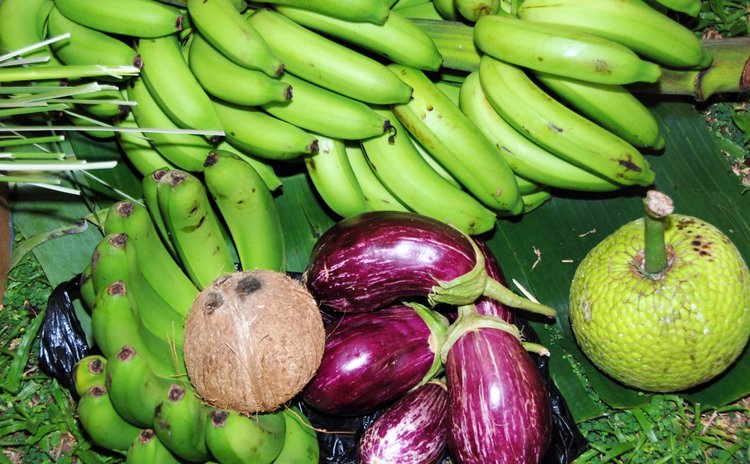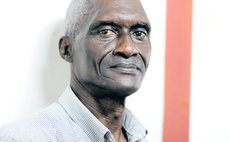A Time for Reflection on Our Food Habits, Lifestyles & Disease Patterns

Our forefathers did not have the luxury of electricity and pipe-borne water; they had to be actively engaged in ensuring that they fed themselves. Today, with more food choices and better amenities, our lives are plagued with lifestyle diseases.
In the 70s, the scourge of under nutrition and communicable diseases was the focus. In the early 80s, the countries in the region, including Dominica, experienced a shift in the nutritional landscape and obesity, diabetes, hypertension, and heart disease were increasing in prevalence, hence the Food and Nutrition Council was established by an act of Parliament in 1981. Our transition from under nutrition in the 70s, to chronic disease in the 80s, to this present time, warrants diversion of our efforts to curb the onslaught of chronic disease in the population.
Dominica participated in the World Food Conference in Rome, in 1992, in which the following sentiments were echoed: "A well-nourished population is essential for long term economic development, but it also a goal of development." Our national anthem speaks to "a people strong and healthy", but is that really a fact? The results of a survey conducted by the Food and Nutrition Council in 1996, revealed, "…a shift away from local foods to highly processed imported foods and high intakes of fat". The 2008 Steps Survey of the Ministry of Health confirmed, "…a decrease in consumption of fresh fruits and legumes, resulting in a lower intake of micronutrients and fiber, and a tendency towards sedentariness and low levels of physical activity." Many of the imported foods are high in sodium, sugar and fat. For example, one packet of ramen noodles, which has become a fashionable weaning diet today for our children, contains ¾ of the daily requirement for sodium in an adult. Figures for obesity, diabetes, and hypertension have risen steadily over the years.
Obesity; is it a question of intake and output?
Obviously if intake exceeds output, over time the net effect will be "obesity". • Human emotions are complex, and there are many psychosocial factors which influence, where, when and why people eat, e.g. stress. • Also there is the matter of genetics. Siblings within the same family, sharing the same meals, may show a difference in weight gain. Such a phenomenon, calls for personal responsibility of individuals to prevent weight gain. • Healthy foods may be available, but some of us make wrong choices. • The elderly may not be able to access healthy foods. • Poverty and reduced income may also interfere with purchasing power. • The climate may be rife with such tempting eatables and sedentary lifestyle behaviours, that they become seduced and influenced by foreign concepts of healthy living. • Wrong choices can be made at home, work, at restaurants and schools. • We have become slaves to technology. • Some of us prefer to sit and watch soap operas, than go out and exercise. • Another reason for the increase in obesity in convenience; no time to prepare food at home, busy moms, cheaper more calorie dense substitutes available, bad eating habits from childhood, obesogenic environment at school or workplace. • Abandonment of breastfeeding • Ignorance of nutritive value of certain foods, for example use of soft drinks, which are calorie dense, instead of fruits, which are high in vitamins & minerals • Decline in nutrition education and physical activity at school • No time for backyard gardening (e.g. virtual disappearance of pigeon peas and baton dasheen in the diets of the younger generation) • No home supervision of children's diet • Regular alcohol consumption has also been identified among our population and even among the youth, permeating our culture under the guise of "festivals".
What is our response?
The Food and Nutrition Council therefore, advocates a multidisciplinary approach that would provide an overall framework of Food and Nutrition-related activities. • Health teams should take the lead. It is essential to rekindle the community participation/Health Committee model of the 80s in the Primary Health Care era. We must begin NOW, and everyone must come on board. • Village councils, youth groups, women's groups, farmers, churches, private sector, N.G.O.s, teachers and especially our media must be more involved. • Our bakers and eating houses must be alerted to the reality of the situation, and be guided into the preparation of more wholesome food, with attention to reduced fat, sodium and sugar, in recipes. Bread, one of the cheapest food items on sale is often high in transfat, which is disastrous to health, so our bakers must take note. • Our calypsonians and choirs must also drive the message home forcefully. This generation is already slow to respond. • Technology has invaded our world and there's no turning back, our youth should be invited to make their contributions to tell us the best way to get the message across. • Our school feeding programs, through the School Garden Initiative, are the ideal locations to impart nutrition knowledge, like the teaching of how to read nutrition labels, which is a useful tool, and to encourage "eating local", and healthy.
Let us build on the positive! Maintain the fabric of Dominican culture. Encourage sporting events, swimming competitions, hiking, creative dancing, rabbit and fish festivals, continue and encourage "Fruit Days" at schools. Health professionals must lead the charge on healthy lifestyles by practicing what they preach. At government level, the system needs to be backed by an increase in the number of nutrition professionals and home economic specialists. Special attention needs to be paid to working mothers who are breastfeeding, by providing the necessary assistance to daycare centers. All these recommendations require commitment and sacrifice, but with God, all things are possible.
In conclusion, obesity is a direct path to Type 2 diabetes, hypertension, heart disease, gallstones and certain cancers. PREVENTION IS KEY! Our country needs healthy people to move forward, so together let us make the desired changes, with the help of God.
Mrs. Eleonore Lambert, CHAIR, Food and Nutrition Council Members of Council include: Mr. Winston Magloire Mrs. Marynese Titre Ms. Paula Trotter Mr. Felix Henderson Mrs. Renna Prosper Mrs. Marcella Harris




